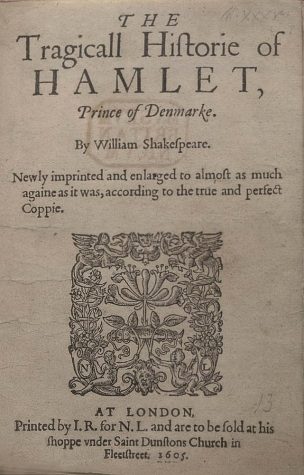Ready To Be Challenged? Consider These Tough Rosary Classes
Challenging classes definitely require a good amount of time and effort.
March 21, 2021
One of Rosary Academy’s many advantages is the plethora of advanced classes we have to offer. From AP Environmental Science to AP Art History, all advanced placement and honors classes cater to students who are interested in a certain subject and want a challenge. After about a semester and a half of taking AP European History, I can say that although interesting, the class is definitely difficult.
Mid-March marks the start of course selection for the subsequent year, and to celebrate the season, I’ve decided to rank the top five hardest classes to take at Rosary. If you’re looking to add a challenging class to your course load, one of these classes might be for you.

1) AP Chemistry
AP Chemistry is a college-level chemistry course that covers a great amount of material. In AP Chemistry, students conduct many experiments, write laboratory reports, and write scientific articles. Topics from states of matter to thermodynamics are covered throughout the course. AP Chemistry is considered one of the most rigorous AP courses to take, and an A in both semesters of Honors Chemistry and an honors math are both required pre-requisites to take this course. AP Chemistry is taught by Mr. Yoon and is offered to both Juniors and Seniors.
2) AP United States History
Also known as APUSH, AP United States History is second in difficulty. In APUSH, a total of nine historical time periods are covered in about fifteen weeks. Fast pace learning is required in APUSH, as students are expected to read a chapter a week and take quizzes in almost every class to prepare for the AP Test. Although a difficult course, our beloved history teacher, Mrs. Jenkins, makes the hard work worthwhile by teaching her students great skills to utilize on the AP Test. AP United States History is offered to Juniors.

3) AP Physics
AP Physics 1 is an algebra-based, college-level physics course that explores classical physics. Topics from kinematics to mechanical waves are covered in AP Physics 1. Prerequisites to take AP Physics are an A in Algebra II, a B or higher in Honors Algebra II, completion of Honors Chemistry with a B or higher, or completion of Chemistry with an A or higher. The prerequisites for this course are a clear indication of its rigor, but it is also very intriguing and helps students develop scientific thinking and reasoning skills. AP Physics 1 is offered for Juniors and Seniors.
4) AP Calculus AB/BC
After passing Honors Pre-Calculus, students are eligible to take AP Calculus AB. This course applies everything learned in Pre-Calculus to a broader spectrum. Junior Sarah Badawi is currently taking AP Calculus AB and shared her experience with the course: “Taking AP Calculus is definitely harder than I thought, but I’ve always been good at math and wanted a challenge. The biggest change for me in terms of taking an AP math is using worded justifications to explain my answers,” she shared. AP Calculus BC is equivalent to both first and second-semester college calculus courses and extends content learned in AB. Sarah also mentioned considering taking AP Calculus BC her senior year: “I am not entirely sure I want to take AP Calculus BC my senior year, but I have not decided yet. I enjoy Mrs. Davidson’s teaching style for AB, which is one reason why I would feel prepared to take BC,” she said. Both AP Calculus AB and BC are offered to juniors and seniors.

5) AP English Literature and Composition
AP English Literature and Composition is a year-long class that focuses on classic literature as well as works that are similar to those on the AP Test. In AP Literature and Composition, students analyze poetry, drama, and fiction. Senior Isabel Alderete shared her experience taking the class this year and said, “AP Literature is going smoothly. I really enjoyed reading A Streetcar Named Desire, and now we are starting Hamlet. Mrs. Young’ 05 is very passionate about Shakespeare, so it’s very fun reading Hamlet with her.” Isabel also explained the difficulty level of the class: “AP Literature is definitely challenging, but it isn’t too hard if you do your reading. Personally, I think the hardest part about the class is the AP style multiple choice and the sophistication point on the essays,” she said. AP English Literature and Composition is offered for seniors.
Hopefully this list has given you an idea of what classes you may want to take next year. Good luck choosing your classes, and if you’ve taken a hard class not mentioned on this list, make sure to let me know.







